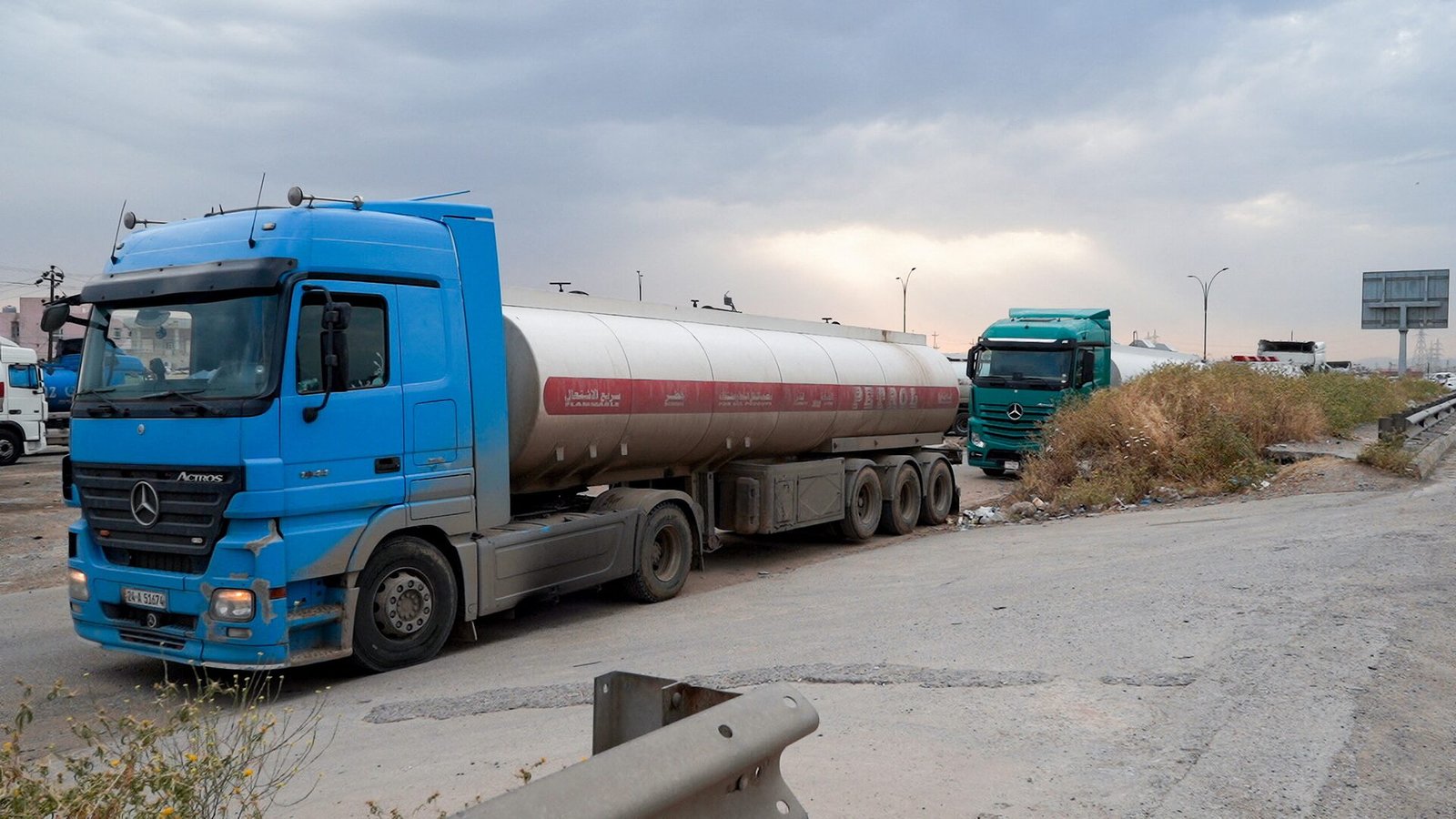How Northeast Syrian Oil Continues Flowing Into Kurdistan’s Refineries

The oil of northeast Syria, extracted from fields in Hasakah and Deir ez-Zor, continues to flow into the Kurdistan Region. There, it is refined in Dohuk and Erbil before being mixed with the Kurdistan Region’s own oil.
Context: On a daily basis, between 15 and 30 crude oil tankers are loaded at the Rumaylan fields in Hasakah and the Deir ez-Zor fields. These tankers cross through the unofficial “Al-Walid” border gate, located south of Faysh Khabur, into the Sahela area before heading toward refineries in Dohuk and Erbil. The Al-Walid crossing is under the control of KDP Peshmerga forces.
Analysis: The volume of oil exported through this route amounts to roughly 4,000–7,500 barrels per day. An official from the northeast Syria administration told local media that each barrel is sold for around $30, generating daily revenues of approximately $110,000–$250,000, or $3.3–7.5 million per month. While modest by regional oil export standards, this income still provides meaningful financial support for the administration, particularly given local exchange rates and purchasing power.
Because the route passes through areas stretching from Sinjar to Zakho, KDP-backed Yazidi commander Haider Shesho has noted: “We see that daily dozens of oil tankers come from Rojava [northeast Syria] through the Al-Walid gate to Sahela, but we have no information about who is conducting this trade or where the oil ultimately goes.”
Northeast Syria’s Oil Flow to Kurdistan Region
Daily Volume
4,000–7,500
barrels per day
Est. Revenue for NE Syria
$3.3–$7.5M
per month
The Journey
A two-year-old report by the London-based Saudi newspaper Asharq al-Awsat claimed that oil from northeast Syria was previously smuggled through the Kurdistan Region and on to Turkey. However, according to an informed source, more recently the oil has instead been exported through Iran—blended with the Kurdistan Region’s crude and shipped onward via Bandar Abbas port to the UAE.
Another portion of this oil is refined inside the Kurdistan Region itself. Some of the tankers offload at refineries in Dohuk’s Semel district, with the refined product sold on Dohuk’s local market. Others are sent to refineries in Erbil’s Khabat district, where after refining they are sold in the Erbil market.
It is notable that the Al-Walid crossing is effectively overseen by Mansour Barzani, the second son of KDP leader Masoud Barzani and commander of the KDP’s special forces. Mansour also owns the Lanaz refinery, located in Khabat, and has long been linked to the northeast Syria oil trade. In 2021, reports suggested he was acquiring crude from Rojava at just $19 per barrel, blending it into the KRG’s pipeline exports to Turkey—at a time when those exports were still operational, before being halted in March 2023 under an international arbitration ruling.









